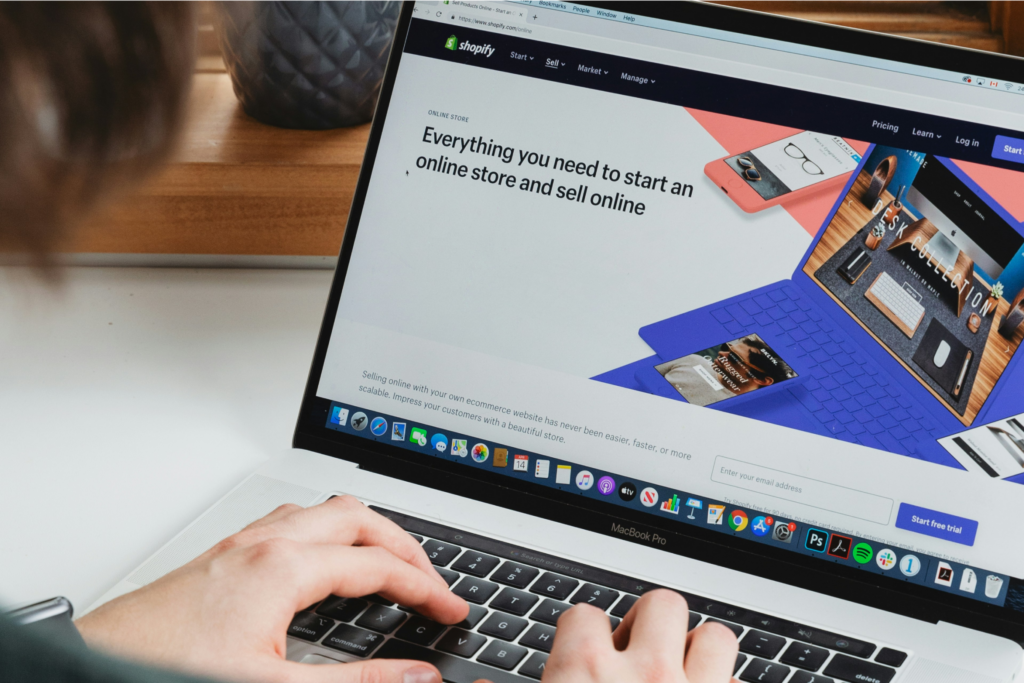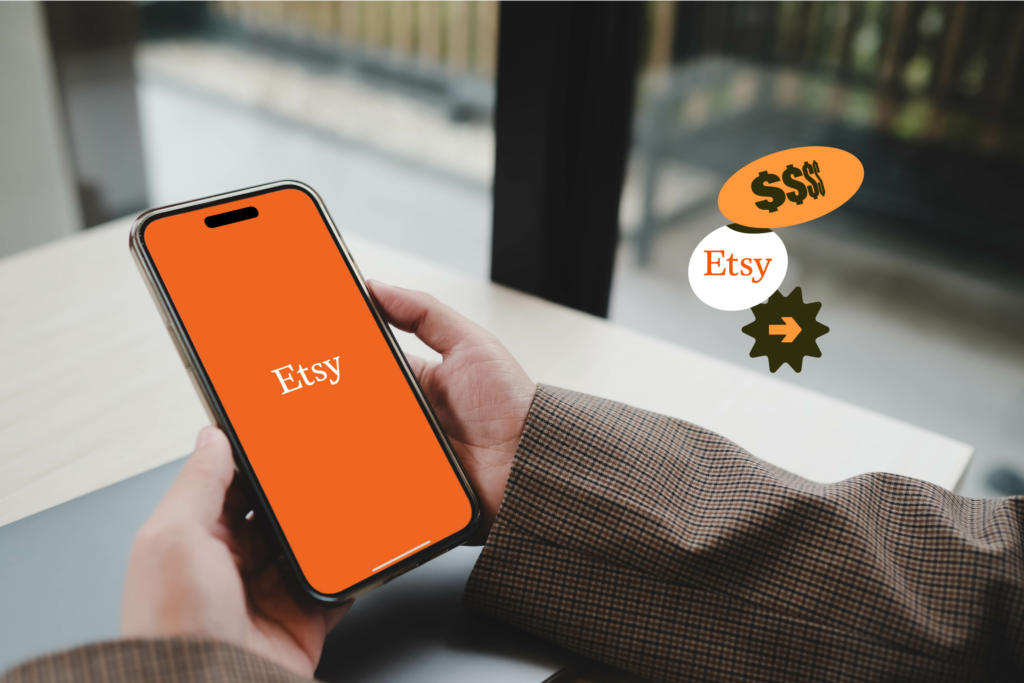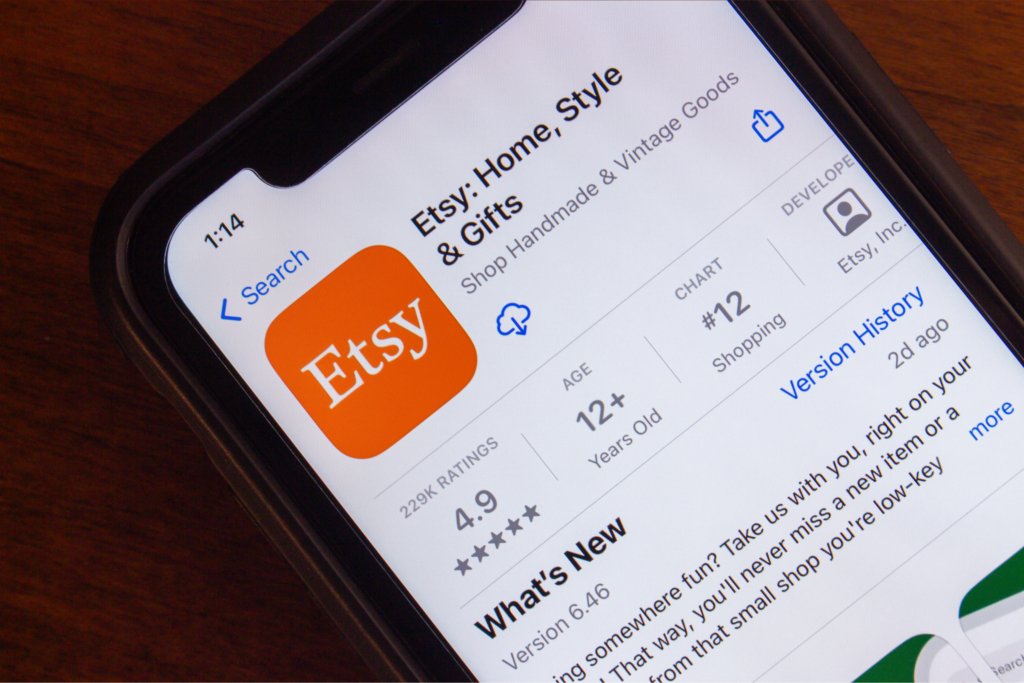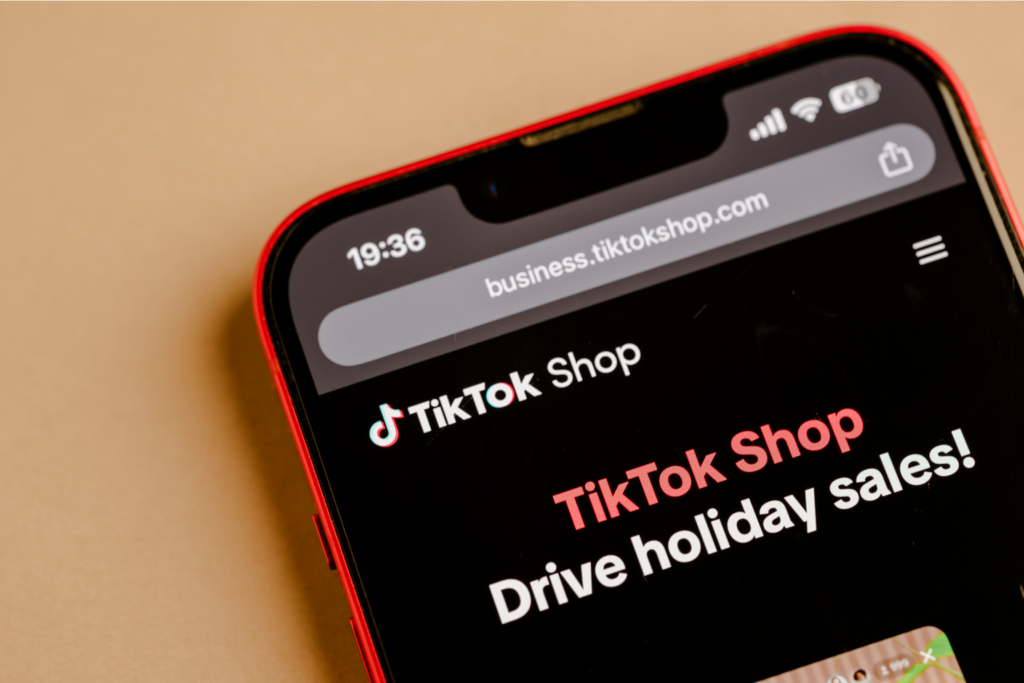Sell custom products without inventory
The dropshipping market may be competitive, but there’s a simple way to stand out – private-label dropshipping.
By adding a unique twist to this proven business model, aspiring entrepreneurs can build a strong brand, attract loyal customers, and generate profits by selling products under their own label.
In this article, we’ll cover:
- Dropshipping: A fulfillment method where a store sells products it doesn’t keep in stock, relying on suppliers to ship directly to customers.
- Private labeling: Products made by a third party but branded with your label, giving you control over the design and quality.
- White labeling: Generic products produced by one company but sold under your brand, allowing for easy rebranding without changes to the product.
We’ll also provide practical tips for starting a private-label dropshipping business in 2026.
This post may contain affiliate links, which means we may earn a commission if you make a purchase through those links. This comes at no additional cost to you.
What is private-label dropshipping?
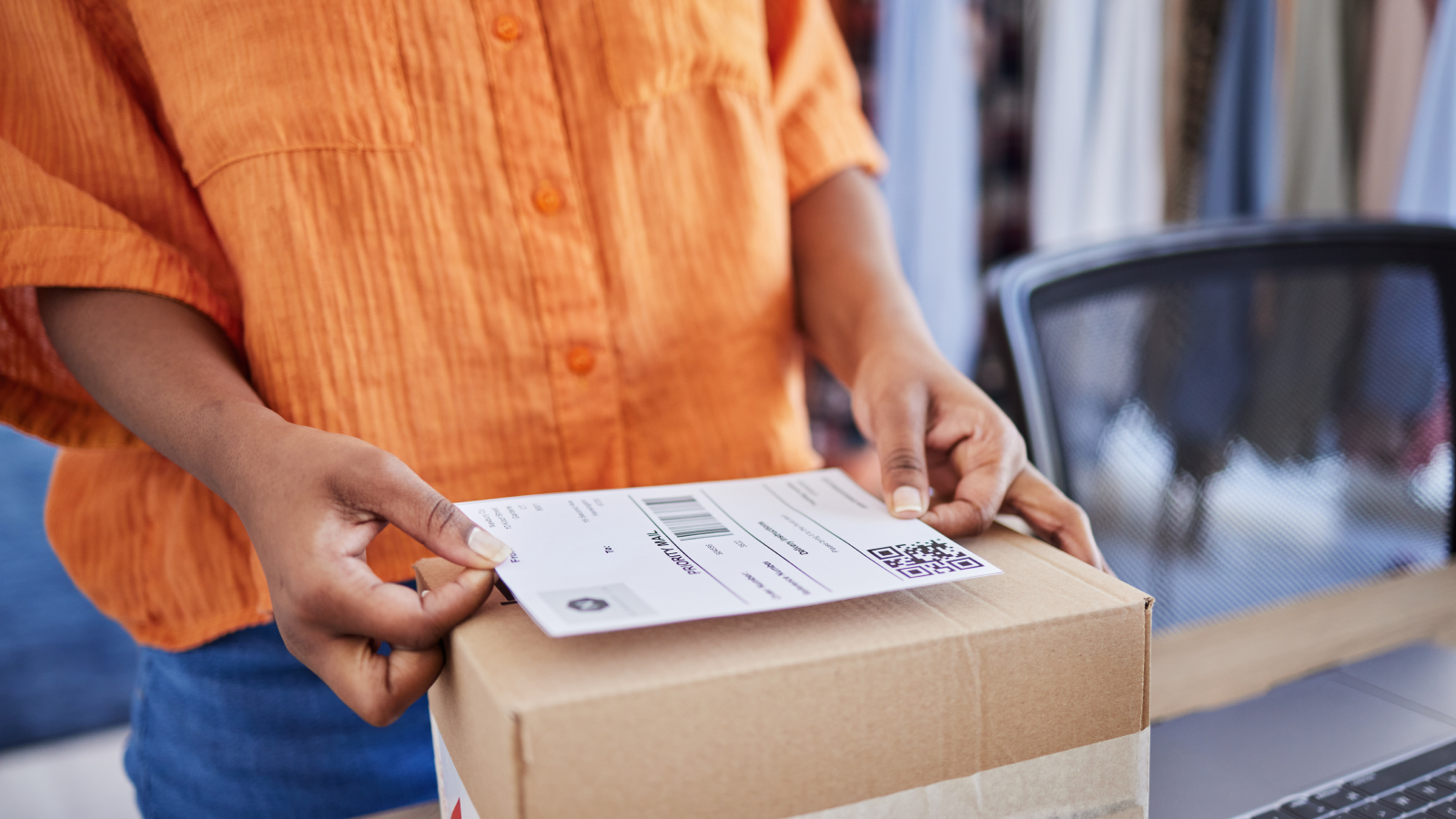
Private-label dropshipping combines the functionality of dropshipping with the ability to customize product specifications.
Typically, this is how it works:
- A third-party supplier manufactures products that can be labeled with a specific brand.
- The dropshipping store owner selects products and customizes them with their branding, such as labels and packaging.
- When a customer buys a product, the store owner notifies the supplier.
- The supplier then ships the branded product directly to the customer’s address.
Dropshipping vs private-label vs private-label dropshipping: An overview
| Private-label business | Dropshipping business | Private-label dropshipping business | |
|---|---|---|---|
| Third-party supplier manufactures the products | ✅ | ✅ | ✅ |
| Unique branding | ✅ | ❌ | ✅ |
| Supplier ships the products to customers | ❌ | ✅ | ✅ |
| Requires storage space | ✅ | ❌ | ❌ |
| Minimum order requirements | ✅ | ❌ | ✅ |
| Custom packaging | ✅ | ❌ | ✅ |
| Ability to customize products to fit market trends | ✅ | ❌ | ✅ |
6 practical tips for starting a private-label dropshipping business
Start a successful business that earns you money and guarantees customer satisfaction by following these six tips – from finding a reliable supplier to creating a strong marketing strategy.
Find profitable private-label products

First, choose the right private-label products for your dropshipping business.
Conduct market research to discover what your customers would like to buy and spot emerging trends.
- Use a product research tool. Find best-selling products with Sell The Trend, AliShark, or Niche Scraper. These platforms use algorithms to analyze products across various sales channels.
- Find trends.Google Trends, Ahrefs, and Semrush are great for checking the popularity of various product ideas and gathering data about consumer demand.
- Analyze the competition. Find various successful dropshipping stores with a simple Google search. Analyze their products, reviews, and customer pain points to come up with ideas that fill a need in the market.
A few popular dropshipping niches:
- Apparel
- Pet supplies
- Eco-friendly products
- Mobile phone accessories
- Fitness and sports products
– Find inspiration by exploring our list of the best dropshipping business ideas and most profitable print-on-demand niches.
– To increase the likelihood of success, learn what a niche is so that you can pick the right one. Attracting online shoppers is easier with a niche product.
– Small and lightweight products reduce shipping costs.
Choose a reliable private-label supplier

Now comes the tricky part – choosing a private-label dropshipping supplier. While they may seem similar, not all suppliers are equal. Research is important.
Here’s what you should consider when evaluating private-label dropshipping suppliers:
- Supplier’s reputation. Search for third-party reviews, check their track record, and look for any red flags: unreliable shipping times, poor communication, or high rates of defective items.
- Product quality and selection. Good private-label suppliers provide various high-quality products at fair prices. The best way to check the quality of a supplier’s products is to order samples and read reviews.
- Control over specifications and design. Check what kind of personalization options suppliers offer to make sure you get to create unique products with your branding.
- Turnaround time. Inquire about their turnaround time and check whether they can meet your requirements without delays or compromising quality.
- Branded packaging. A unique unboxing experience helps to further increase your brand’s perceived value, social following, and customer loyalty. Ask whether the supplier offers custom branding on the packaging.
- Minimum order quantity. Private-label dropshipping suppliers often require ordering a specific number of products before manufacturing. If you’re inexperienced, find a service with the lowest minimum order size.
- eCommerce store integrations. Make sure the supplier offers easy integrations with your preferred sales channels.
Never trust a supplier without first researching whether they’re a legitimate business. Go through their website, read genuine reviews, analyze search engine results, and reach out to them. A reliable supplier has nothing to hide and should have excellent reviews.
Popular private-label dropshipping suppliers
A well-known supplier directory offering custom packaging and after-sales services for damaged or lost products.
Pros:
- Over 400,000 products across multiple categories
- Warehouses in key regions (US, UK, EU, Asia)
Cons:
- Shipping costs vary based on location, weight, and services
Specializes in product sourcing, warehousing, and private labeling.
Pros:
- US-based warehouses
- Strict quality control
- Global shipping
Cons:
- Requires a minimum daily order for private-label products
One of the largest global marketplaces for private-label goods.
Pros:
- Vast product selection
- Competitive pricing
Cons:
- Long shipping times
- Difficulty finding reliable suppliers
- Minimum order quantities are required
– When talking to private-label suppliers, don’t forget that some of them are open to negotiations if your business shows potential.
– Explore the top 15 dropshipping suppliers and learn to choose the right one.
Design your private-label products

After finding the right private-label supplier, develop a unique product that stands out in the market.
Typically, it goes like this:
- Develop a product. Create a product with a supplier. Send them product specs, material, and color preferences.
- Approval and pricing. After agreeing on details, the supplier will send a quote with pricing and timelines.
- Inspect the sample. A supplier sends samples, allowing you to examine the quality.
- Finalize the product. If you’re happy with the result, the supplier begins manufacturing.
- Review packaging. Review the packaging and ensure everything matches your brand image.
When creating the prototype, keep in mind that the design should be unique, visually appealing, and, most importantly, convincingly convey the brand message.
Choose a sales channel
Selecting the right sales channel significantly impacts your business’s reach, profitability, and overall success. Here’s a breakdown of the two main options, each with its unique advantages and limitations:
eCommerce platform
- Build a fully customizable online store from scratch.
- Offers control over branding, design, and content.
- Ideal for businesses looking to scale with unique features and tools tailored to their brand’s needs.
eCommerce marketplace
- Easy setup with access to a large, pre-existing customer base.
- Requires less effort to start selling, but limits control over store design and branding.
- Great for reaching customers quickly but may lack customization options for branding.
Weigh the pros and cons of the best sites to sell online to pick the most suitable one.
Establish a brand identity

A strong brand identity sets your private-label dropshipping business apart, helping you build trust, gain loyal customers, and increase recognition. It consists of elements like your business name, logo, and overall visual style, which should remain consistent across all platforms.
- Business name. Your own brand name should be clear, memorable, and somewhat reflective of your products or services. Try using ChatGPT for unique brand name inspiration.
- Logo. Ensure it’s versatile and looks professional across all mediums, like social media, packaging, and websites. Hire a designer on Fiverr starting at just $5 or try designing yourself with Adobe Express.
- Visual identity. Use a consistent color palette, typography, and imagery that matches your private-label brand and products and resonates with the audience.
For more tips, check out our comprehensive guide to building a strong brand identity.
Work on company branding and marketing strategy

After establishing your brand’s identity, create a marketing strategy that effectively conveys your brand’s message, values, and quality. A well-crafted strategy connects your brand to your target audience in a meaningful way, raising brand awareness, attracting new customers, driving sales, and generating repeat purchases.
Here are a few ways to market your private-label dropshipping business:
- Social media. Maintain a strong social media presence on various platforms and consistently engage with your target audience. Create new content regularly, post beautiful images, write compelling product descriptions, and run contests.
- Paid advertising. Try Google, Facebook, or Instagram ads to effectively reach your potential customers.
- Influencer marketing. Reach a wider audience by collaborating with influencers who can endorse your private-label items and reinforce your brand promises.
- Content marketing. Build trust and authority in your niche by consistently publishing relevant content – articles, insights, or product reviews. Great content has a long-lasting impact and attracts customers long after publishing, making it one of the most rewarding marketing strategies.
Explore marketing tips and tricks for practical strategies and insights tailored to entrepreneurs of all experience levels.
Private-label product examples
Private-label products allow businesses to personalize items with their own branding and identity. Some common examples of private-label items include clothing with custom neck labels, food and cosmetics with unique packaging, and custom-designed product labels.
While these products offer some customization, they often follow a standardized production model, allowing companies to focus on branding, but have no say over the product quality.
Printify also offers fully customizable all-over-print (AOP) products and other items that allow for greater creative control. A higher level of control equals a more unique brand. This type of merch gives you the chance to stand out with unforgettable designs across the entire product surface.
A few examples of private-label products:
- Clothing with custom neck labels or tags.
- Products with branded packaging.
- Customized accessories like bags or hats.
Check out some of our highly customizable options that you can start selling with no minimum order quantity:
Private-label dropshipping vs white-label dropshipping: Which to choose?

Choosing between white-label and private-label dropshipping suppliers depends on your business goals, customization needs, and branding strategy. Here’s how the two differ and which option might suit your business.
Benefits of private-label dropshipping
- Fully-branded products. With private labeling, entrepreneurs can pursue product ideas according to their own vision and create custom products that nobody else has.
- Higher profit margins. By offering unique products, the company has the option to set a higher profit margin, regardless of the market environment.
- Customized quality control. Private-label dropshippers communicate directly with the manufacturer – they have more control over the production process and the product’s quality.
Private-label dropshipping is best for:
Entrepreneurs looking to build a brand with full control over their products, pricing, and creative decisions. It’s ideal for those aiming for higher profits and long-term brand recognition, giving you greater flexibility in customization and market positioning.
Benefits of white-label dropshipping
- No upfront investment. Entrepreneurs pay for the product only after a customer buys it.
- No minimum order quantity. Since manufacturers don’t need to customize the product itself, but only the design, they don’t require that businesses order in bulk.
- No inventory management. Manufacturers create products on demand and ship them directly to the customers, so white-label dropshippers don’t need to worry about inventory or logistics.
- Seamless integrations. White-label dropshipping services offer seamless integration with various sales channels, making selling products online a hassle-free experience.
White-label dropshipping is best for:
Entrepreneurs focused on quick product launches, lower startup costs, and selling trending or generic products with their own labels and custom designs. It’s perfect for those wanting to start fast while tapping into existing demand with minimal upfront investment and traditional inventory management.
FAQ
Private-label dropshipping is a business model where you sell your own products that are manufactured by a third-party but customized with your unique branding, logos, and packaging.
This method allows entrepreneurs to offer a seamless brand experience without holding inventory or managing production. While you work on your brand’s identity, a reliable private label manufacturer handles the logistics.
Private-label dropshipping can be highly profitable if done right. By designing your own products, setting your own pricing, and choosing an excellent private label manufacturer, you can control your profit margins and scale your business effectively.
The profitability of dropshipping private label products depends on demand, supplier costs, and the marketing of your online store.
Yes, private-label dropshipping is worth it if you aim to build a unique brand and have more control over your product offerings. Private-label dropshipping services allow you to sell amazing custom products that, if promoted right, can create a strong brand presence in your niche.
For businesses focused on long-term growth and brand loyalty, it offers significant advantages compared to traditional dropshipping.
Private-label dropshipping on Shopify refers to selling custom products under your brand through a Shopify online store. Shopify’s integrations allow you to easily find private label suppliers and manage the sales process from product listing to fulfillment.
This method enables you to create a distinct brand while selling unique items to your audience without dealing with inventory management.
Conclusion
If done right, private-label dropshipping is a great way to make money. It offers a powerful opportunity to create a distinctive brand, delivering custom products that align with your vision and meet customer demands.
By leveraging private-label suppliers, you can develop products with your own logo and designs while maintaining control over pricing and quality. This business model not only allows for higher profit margins but also creates a loyal customer base – you simply need to find the perfect private-label dropshipping supplier that matches your target market.
For entrepreneurs looking to scale and stand out in a crowded market, the benefits of private-label dropshipping make it a worthwhile venture. From custom packaging to better quality control, private-label dropshipping is a great way to build a sustainable business and grow an online store.

















